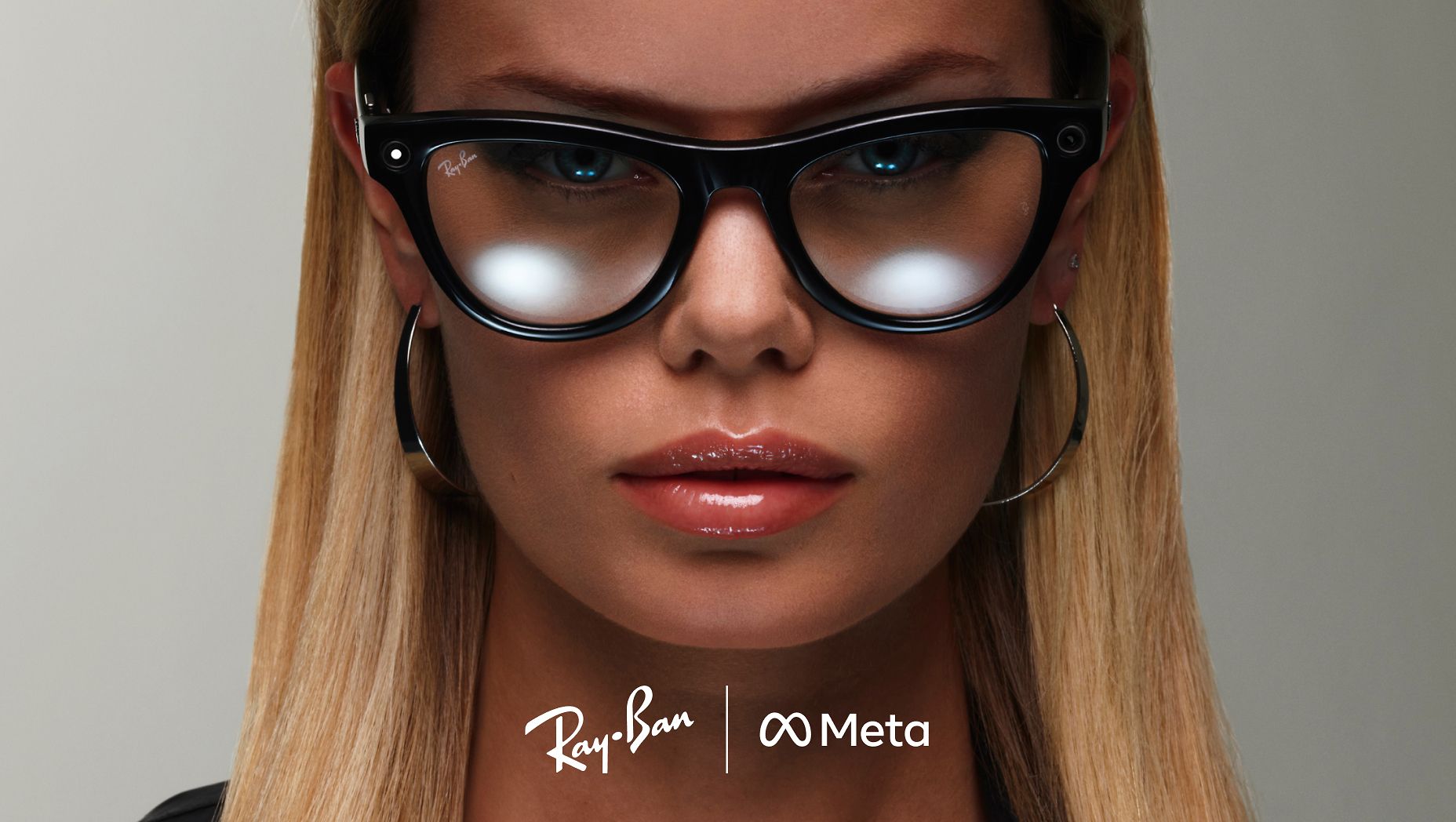The rapid rise of generative artificial intelligence (GenAI) has undoubtedly captured the imagination of Silicon Valley and tech enthusiasts worldwide. Since the launch of OpenAI’s ChatGPT chatbot in November 2022, the world has witnessed an explosion of interest in generative AI, with startups raising billions in venture capital and tech giants like Meta and Microsoft scrambling to integrate these technologies into their product ecosystems. Despite this, when it comes to tangible gadgets powered by generative AI, the holiday season of 2024 may disappoint those hoping to gift the next big thing in AI hardware.
Here's ads banner inside a post

As shoppers scour the internet for the latest gadgets this Black Friday, many will find themselves faced with limited options when it comes to AI-powered devices. While there are some promising deals, the world is still in the early stages of integrating generative AI into consumer hardware. In fact, the reality is that despite all the buzz and potential, generative AI hardware is still in “inning zero”—the very beginning of its journey toward mainstream adoption.
Generative AI: The Early Days of a Technological Revolution
Generative AI refers to technologies capable of creating content, solving problems, and performing tasks based on prompts or inputs from users. This includes everything from AI-powered chatbots that can hold human-like conversations to AI systems that can generate art, music, or code. The excitement surrounding generative AI, particularly in Silicon Valley, has been palpable, but it’s important to acknowledge that the tech is still in its infancy.
Here's ads banner inside a post

While some AI-powered gadgets have been showcased at tech trade shows like CES (Consumer Electronics Show), these products have often failed to live up to their expectations. Many early attempts to build consumer-facing AI devices have faltered due to issues with performance, user experience, and technological limitations. According to Paul Gagnon, a vice president at Circana, a global analyst firm, CES 2024 showcased promising gadgets from startups such as Humane and Rabbit, but most were criticized for being slow, unreliable, and failing to meet the hype. This is largely because generative AI devices are “compute-restrained”—they require more powerful hardware than current devices can support, especially when compared to the processing power of smartphones or laptops.

Here's ads banner inside a post
Ben Bajarin, CEO of Creative Strategies, further emphasizes that these devices are struggling to keep up with consumer expectations. “We’re not yet at a point where the devices are powerful enough to handle the demands of generative AI on their own,” Bajarin says. “Plus, they’re often too expensive and confusing for the average consumer.” Many GenAI gadgets also require a strong internet connection to function optimally, which can lead to frustrating delays and reduced performance when connectivity is subpar.

The Current Landscape: Devices with AI Features, But Not Breakthrough Gadgets
While the journey toward truly transformative generative AI gadgets is still unfolding, a few devices are available for early adopters who are eager to experiment with this new technology. These devices often incorporate AI features, but they are not yet game-changing breakthroughs. Notable players in this space include Meta, Rabbit, and Bee AI, which are offering some enticing Black Friday deals for those curious about integrating AI into their daily lives.

Ray-Ban Meta Smart Glasses: A Step Toward AI-Enhanced Eyewear
One of the most notable devices in the market is Meta’s second-generation Ray-Ban smart glasses. Released in 2023, these glasses are not the augmented reality glasses many consumers were hoping for, but they do offer AI-enhanced features. Powered by Meta’s generative AI, the glasses can take photos, listen to music, and even help users with practical tasks through the Meta AI assistant.

For example, if you’re walking down the grocery aisle, you can ask the Meta AI assistant to scan the shelves and recommend recipes based on the items in your line of sight. The glasses are equipped with cameras and microphones to perform these tasks, allowing users to interact with the environment in new ways.
Although the glasses don’t offer augmented reality experiences like some of the sci-fi visions of the future, Meta has made significant strides in integrating AI capabilities into a wearable device. As part of their Black Friday promotion, Meta is offering a 20% discount on certain versions of these smart glasses. The Ray-Ban Meta Skyler style is now available for $239.20, down from its regular price of $299.

Rabbit R1: A Playful AI Assistant in a Portable Package
Rabbit, a startup that made waves earlier this year with its r1 device, has continued to refine its product in response to customer feedback. The Rabbit r1 is a compact, orange-colored device that looks like a mini tablet and offers a range of AI-powered features. It can record voice memos, set timers, and perform more complex tasks, such as retrieving information from past conversations and performing quick searches.

Despite receiving mixed reviews for its initial performance, Rabbit has rapidly released updates to improve the user experience. The company has sold over 100,000 units of the r1, far surpassing its initial expectations. The device’s appeal lies in its affordable price point and playful design, which sets it apart from the more utilitarian gadgets on the market. Rabbit is offering free shipping or $15 off on orders placed by December 4, making it an attractive deal for Black Friday shoppers.
Bee AI: A Voice-Activated Digital Assistant on Your Wrist
Bee AI, a startup that raised $7 million in funding earlier this year, is launching its AI-powered device, the Bee, just in time for the holidays. The Bee is a smartwatch-like device that functions as a voice-activated assistant. It can listen to voice memos, summarize conversations, and create to-do lists for users. The device can also integrate with healthcare tools and personal services like Google and Gmail to provide personalized summaries and action items.

One of the standout features of the Bee is its ability to function well in noisy environments, a common challenge for many voice-activated devices. The Bee is priced at $49.99, with a $15-per-month subscription fee for additional features such as advanced memory and better voice recognition capabilities. For Black Friday, Bee AI is offering three free months of the subscription service, making it an appealing option for those looking for a personalized AI experience at an affordable price.
The Road Ahead: What’s Next for AI-Powered Gadgets?
Despite the excitement surrounding generative AI, widespread adoption of these technologies is still a few years away. According to Steve Koenig, Vice President of Research at the Consumer Technology Association, it may not be until 2025 that we see a “big explosion” in the availability of GenAI-powered gadgets like computers, smartphones, and wearables. For now, consumers will have to wait for the technology to mature and for companies to overcome the current limitations of generative AI hardware.

As AI models continue to improve and chip manufacturers push the boundaries of what’s possible, we can expect to see more powerful and practical AI gadgets in the near future. However, it’s important to remember that the current generation of AI-powered devices is still in its early stages. While they offer some exciting features, they are not yet the must-have gadgets that consumers may have been hoping for this holiday season.
AI Hardware Is Still a Work in Progress
Generative AI has certainly made waves in the tech world, but as we approach the holiday shopping season of 2024, it’s clear that AI-powered gadgets have yet to become a mainstream phenomenon. The few devices available—such as the Ray-Ban Meta glasses, Rabbit r1, and Bee AI—offer glimpses of what the future may hold but still have significant room for improvement.

For consumers looking for the next big thing, generative AI hardware might not be quite ready for prime time. However, early adopters can find some interesting products at a discounted price, making this a great time to experiment with the technology and get a sneak peek into what the future of AI-powered gadgets might look like.
As we continue to develop new applications for generative AI and improve hardware capabilities, the coming years could bring an explosion of innovation that transforms how we interact with technology. Until then, the promise of AI is just starting to unfold, and the future remains full of exciting possibilities.

